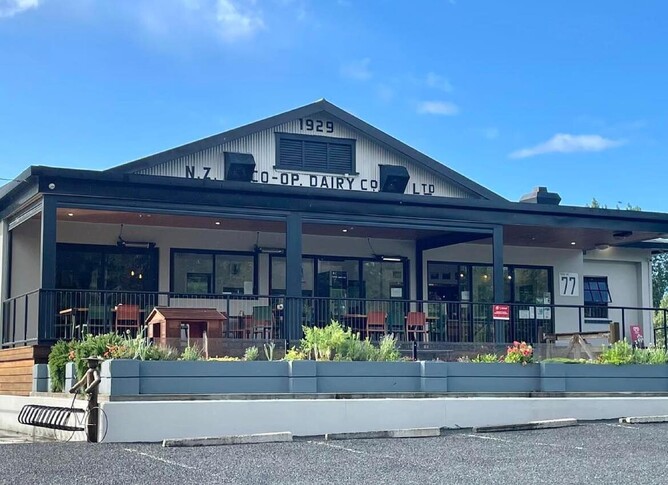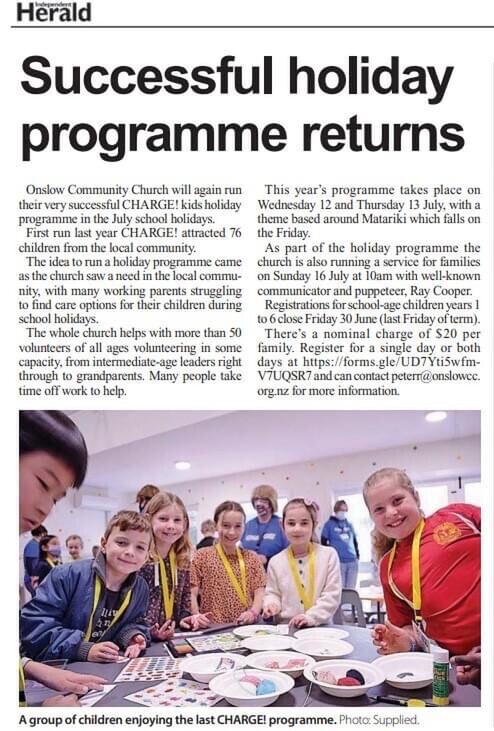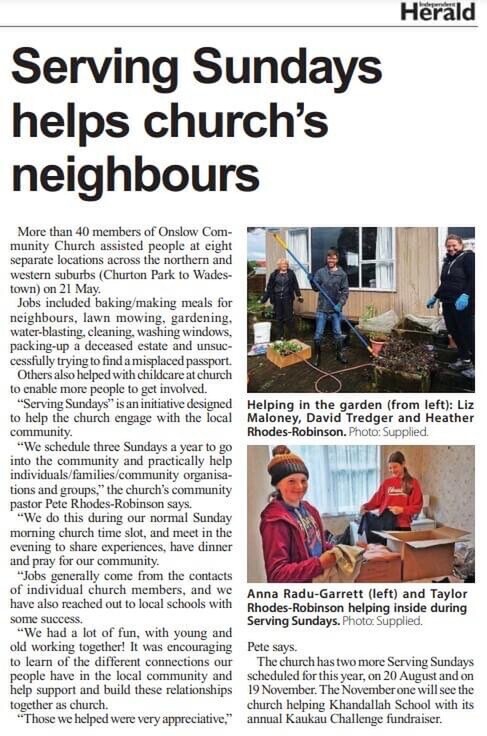Ruth 1:20
"Na ka mea ia ki a ratou, Kaua ahau e karangatia, ko Naomi; ko Mara ta koutou e karanga ai ki ahau: he kawa rawa hoki ta te Kaha Rawa mahi ki ahau."
"Don’t call me Naomi,” she told them. “Call me Mara, because the Almighty has made my life very bitter."
"A ‘ua fai atu o ia ‘iā te i latou, “‘Aua tou te ta‘ua a‘u o Naomi, a ‘ia ta‘ua a‘u o Mara; auā ‘ua matuā ‘o‘ona mea ‘ua faia ‘iā te a‘u e Lē ona le malosi uma lava."
Ruth chapter one takes place in tumultuous times. The story takes place in the days of the judges. It has been a bleak 400-year period, a time of anarchy. It was profoundly difficult for women.
Ruth chapter one is broken into three scenes.
In scene one, we are in Moab.
It’s the scene of Naomi’s bleakness. Famine forced her family to Moab, 50 kilometres from Bethlehem. Elimelech and Naomi are immigrants in a land not their own.
Death finds her husband, Elimelech.
After ten years her sons, Mahlon and Kilion, are dead too.
Naomi is in a foreign land. She had lost her two sons and her husband. She’s now responsible for two foreign daughters-in-law. She has no status, she has no security, no identity. She’s broken and bereft.
It’s bleak. As thick as a blanket of soot, that bleakness covers everything.
In scene two, we are on the way back to Bethlehem.
The scene takes place amidst preparations for the week-long walk from Moab to Bethlehem. It’s a dangerous walk over treacherous terrain. Naomi’s bleakness is now full-blown bitterness. And bitterness towards God begins to blur her thinking.
Look with me: in verses six through twelve, Naomi recognises God coming to the aid of his people. She recognises that God can show kindness and protection to her daughters- in-law. But she is still so, incredibly bitter about the Lord's treatment of her. Her bitterness leads to deep hopelessness.
Naomi exclaimed: “The Lord's hand has turned against me.”
Naomi’s bitterness has led her to exactly the wrong conclusion. It has blinded her eyes to see God’s grace in Ruth.
Like fogged-up windscreens, bitterness blurs what we see.
I’ve known this bitterness before. I faced a year-long struggle with jealousy that turned into bitterness. Any bitterness can so quickly lead us into bitterness towards God.
This bitterness "starts in our hearts when we sense there is an unfairness, an injustice, a sense we’ve been wronged*."
In the future it is possible that Bible in Schools will struggle. Conversion practices prohibition legislation could have far-reaching consequences for the church. Freedom of religious speech is likely to diminish significantly over the next few years.
All of this can lead us to exactly the wrong conclusion. It could lead us to be fearful at the very moment we need faith, to be fragile at the very time we need to be fearless, to freeze at the very moment we need to focus on Jesus.
In scene three, we are in Bethlehem.
Naomi and Ruth have made the difficult journey back from Moab. But Naomi’s bitterness now leads to full-blown blindness.
Bleakness, bitterness, blindness.
The bitterness is so deep, so painful, that Naomi shapes her identity around it. "Call me Mara." "Call me bitterness."
The bitterness is so raw, so real, so personal. She interprets her whole experience through it: "The Lord has brought me back empty."
Like a wall of mirrors distorting our image, bitterness distorts her understanding of herself and God. “God made my life bitter. He has brought me here empty. He's afflicted me. He has brought me misfortune."
Notice how self-focused Naomi’s bitterness becomes.
“Made my life very bitter.”
“Brought me back empty.”
“The Lord has afflicted me.”
“Misfortune upon me.”
This kind of bitterness draws us into the centre. This kind of bitterness makes us big and God small.
It’s 2020. I’m heading out fishing with a mate off Himitangi beach.
We get into real trouble. The wind gets up, the surf becomes huge, we are tossed out. We end up clinging to our kayaks, exhausted in the surf. We are saved by the incoming tide, washed toward the shore.
As difficult as Naomi’s circumstances are, God's sovereign plan—like the incoming tide—rescues her.
Despite Naomi's bleak, bitter, blind outlook, God is at work. He gives her Ruth. In the rest of the book, God gives her Boaz, their redeemer and provider. God gives them a baby, a baby who will be the grandfather of King David.
Only thirty generations later, God gives another baby—this time, he is the King of Kings. Jesus, God’s true and better redeemer.
In all the bleakness and bitterness that washes over us, God is at work. Steady as the tide, his plans are coming to pass.
God is growing a more robust church, a more distinctive church.
In the bleakness of a changing New Zealand, bitterness need not define us. God is doing something better.
*taken from Tim Keller's sermon, How to Deal with Dark Times
By Mark Grace, CCCNZ Ambassador
Outreach News From Churches
CCCNZ Camping Enabler Richard Davis recently met with Justin Thompson, a pastor at Manawaru Bible Chapel.
Richard writes: ”Justin shared the church's vision for their community which is centred around the local school, Manawaru Primary, which has about 85 students.
"The church has built a strong relationship with them over a number of years through Bible in Schools, school chaplaincy work, and other school community assistance. One result of this relationship is that approximately 20 children from the school now regularly attend Rally.
"Today the church started a 'Coffee On Us' at Cafe 77 where they invite ladies from the community for a free coffee and friendship and provide a space to be heard and to hear.
"I shared our desire to investigate how camps can help and suggested that Justin talk to their local camp and share their vision for the Manawaru community.
"It is awesome to hear that they are planning a church camp where they will invite the Rally families and others from the community to attend. It has taken a number of years for this relationship with the school community to be built, but the church is now seeing the fruit of that connection.”
Scones from Cafe 77.
Onslow Community Church in the Newspaper
Above and below: I was encouraged to read how Onslow Community Church is pointing people to Jesus in their region's local newspaper.
If you’d like to know more about how to engage your local newspaper, don’t hesitate to be in touch with Peter Rhodes-Robinson, Warriors fan and elder-pastor at Onslow Community Church.
Crisis Communications for Christian Organisations
Engaging your local newspaper is also one of the topics touched on in the Crisis Communications Workshop at the regional CCCNZ summits.
As a church leader or camp manager, what happens when you receive that phone call?
A journalist is calling you at 11am and needing your comment for their 3pm deadline. They are raising questions about a church leader, or questions about content in a Bible talk, or questions about the handling of funds.
What will you say? What procedures and policies do you have in place to equip you in this moment?
Managing communications in a crisis is an increasing feature of Christian leadership in our culture.
The time to prepare for the crisis is before the crisis.
At each Regional Summit we invite professional Christian communication specialists to introduce leaders to the types of procedures and planning that can make all the difference when a crisis hits.
We have had very positive feedback from elders, ministry leaders, and camp managers who attended the Waikato and Lower North Island workshops.
We would like to invite all elderships, chairpersons (of elderships, community trusts, campsites and ministries), and pastoral leaders to attend.











